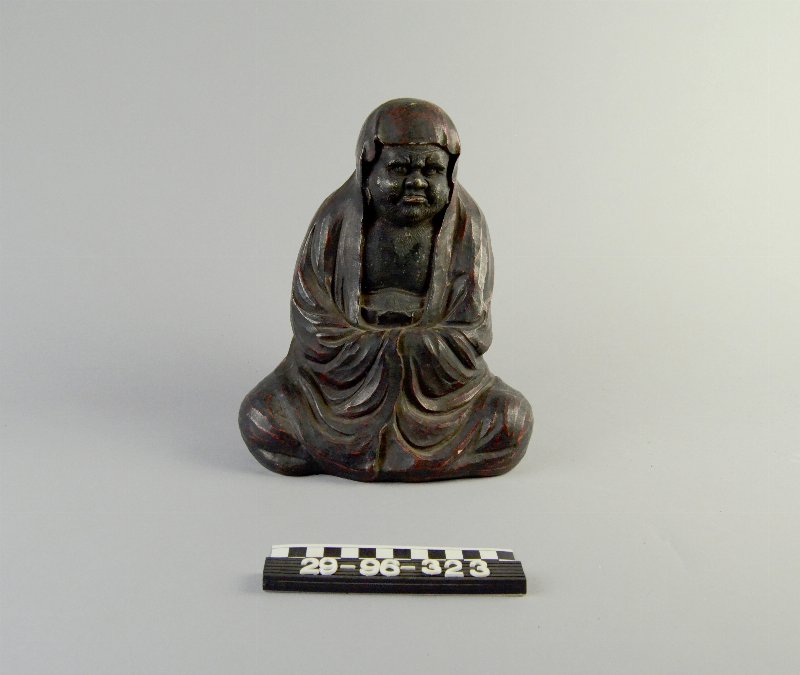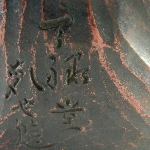| Object Number | 29-96-323 |
| Current Location | Collections Storage |
| Culture | Japanese | Buddhist |
| Provenience | Japan | Buddhist Temple |
| Period | Edo Period (uncertain) | Meiji Period (uncertain) |
| Date Made | 19th Century |
| Section | Asian |
| Materials | Wood | Plaster | Lacquer |
| Technique | Lacquered |
| Iconography | Daruma |
| Inscription Language | Japanese Language |
| Description | Statue of seated Daruma with blackened body and red robes. Daruma 達磨, also known as Bodhidharma or Putidamo (Chinese: 菩提達磨), is an Indian monk who is the putative founder of Chan (Zen 禅) Buddhism. He achieved enlightenment and traveled to China across the ocean to introduce Mahayana teachings. According to legend, his limbs fell off during a nine-year meditation. The round-shaped Daruma dolls that are used as good luck charms (first created in the 16th century) represent the sage with no arms or legs. The statue is made of wood and plaster and is black with touches of red and brown lacquer. |
| Height | 24 cm |
| Width | 20 cm |
| Depth | 14 cm |
| Credit Line | Bequest of Maxwell Sommerville, 1904 |
Report problems and issues to digitalmedia@pennmuseum.org.



